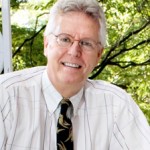We may be one of the few centers for teaching and learning (CTLs) that do not belong to POD (the Professional and Organizational Development Network in Higher Education), a professional organization that Sorcinelli reported in 2006 contained 1400 members. We used to belong, but their institutional fee was too large of an item to maintain on our budget, a budget which we think could be among the lowest in the nation. We also confess that we have never been to POD’s annual conference.
Should we belong? Probably. The benefits of being able to reach out to other CTLs for solutions to common problems are great. But despite not subscribing to a national service, we are not totally alone.
Related Reading: How to Improve Faculty Attendance at Higher Ed Professional Development Events
State Organization
Luckily, our state has its own mini-POD. All higher education in the commonwealth is governed by the Council on Postsecondary Education (CPE), which years ago created the CPE Faculty Development Workgroup (FDW). Consisting of the six regional comprehensive universities, the University of Kentucky, the University of Louisville, 19 independent schools, and the state’s community college system, this group has its own bylaws, a rotating annual facilitator, four meetings per year (half accomplished online), and a yearly conference.
As members of the FDW, we have primarily contributed to the group’s well-being throughout the past decade. In fact, in six of the last ten years, we have been in charge of the group’s conference. Three years ago we moved it to our university and renamed it the Kentucky Pedagogicon and then just The Pedagogicon (usually followed by its year).
What probably prodded us into this post was that last Friday we held Pedagogicon 2016, and the entire conference experience has weighed heavily on our minds. After a few years of increased attendance, this year the number of conferees fell off. Ironically, as we have added attendees from Massachusetts, Texas, and even Toronto, three of our major regionals did not send a single person to the conference, nor did they actually name a representative to our group.
And that decline we directly attribute to the gradual disintegration of the FDW. In point of fact, one of our counterparts at another state institution told us at the Pedagogicon that the CPE FDW has fallen to the bottom of her list of priorities. Indeed, this year the group met only once online, and we had to hold a working BBQ the night before the conference to get everyone up to date. Fittingly, only three persons attended, one of whom represented the CPE.
The principle is simple—a chain is only a strong as its weakest link.
So we sit here at the end of another academic year trying to figure out what direction to go. As we see it, we have three choices (or some combination thereof):
1) Drop out of the FDW (if we can).
2) Join the POD.
3) Rejuvenate the FDW.
We have chosen option #3, and we may even find the money to join POD in the fall, especially since its national conference is being held this fall less than a hundred miles away.
Related Reading: An Innovative Plan for Assessing Faculty Development
Suggestions for Rebuilding
As we try to generate more interest in the state workgroup, we have come up with several suggestions for doing so.
- Survey the members. At last week’s Pedagogicon and the pre-conference BBQ, we talked with various college representatives as well as some from the CPE. All of those contacted offered some suggestions, but most were about the conference and not the FDW.
- Contact the provosts at the member institutions that do not have a representative and ask if these administrators will select someone.
- Remind all that the higher ed accrediting agency to which we belong, SACS, has SACSCOC Principles of Accrediation (2012) that include faculty development as a Comprehensive Standard: “3.7.3 The institution provides ongoing professional development of faculty as teachers, scholars, and practitioners.” Obviously, the FDW and its Pedagogicon offers a partial way of fulfilling that requirement.
- Contact the state’s CPE to have them call together a meeting of the workgroup. Perhaps if we can get this authority to exert some influence, the group can be revitalized.
Final Thoughts
Sometimes we blame ourselves for the FDW’s decline. The group’s basic function for as long as we have belonged has been to provide a state-wide conference for the exchange of the best pedagogical strategies. Maybe by handling those duties ourselves for 60% of the decade, we have caused other state schools to feel less relevant and less participatory.
In any case, belonging to a larger group with similar concerns, be it the FDW or POD, seems absolutely necessary.
Author
 Ph.D Hal Blythe writes literary criticism to mystery stories. In addition to the eleven books he’s published with New Forums, Hal has collaborated on four books on a variety of subjects, over 1000 pieces of fiction/nonfiction, and a host of television scripts and interactive mysteries performed by their repertory company. He is currently co-director of the Teaching and Learning Center for Eastern Kentucky University. Meet Hal Blythe.
Ph.D Hal Blythe writes literary criticism to mystery stories. In addition to the eleven books he’s published with New Forums, Hal has collaborated on four books on a variety of subjects, over 1000 pieces of fiction/nonfiction, and a host of television scripts and interactive mysteries performed by their repertory company. He is currently co-director of the Teaching and Learning Center for Eastern Kentucky University. Meet Hal Blythe.



